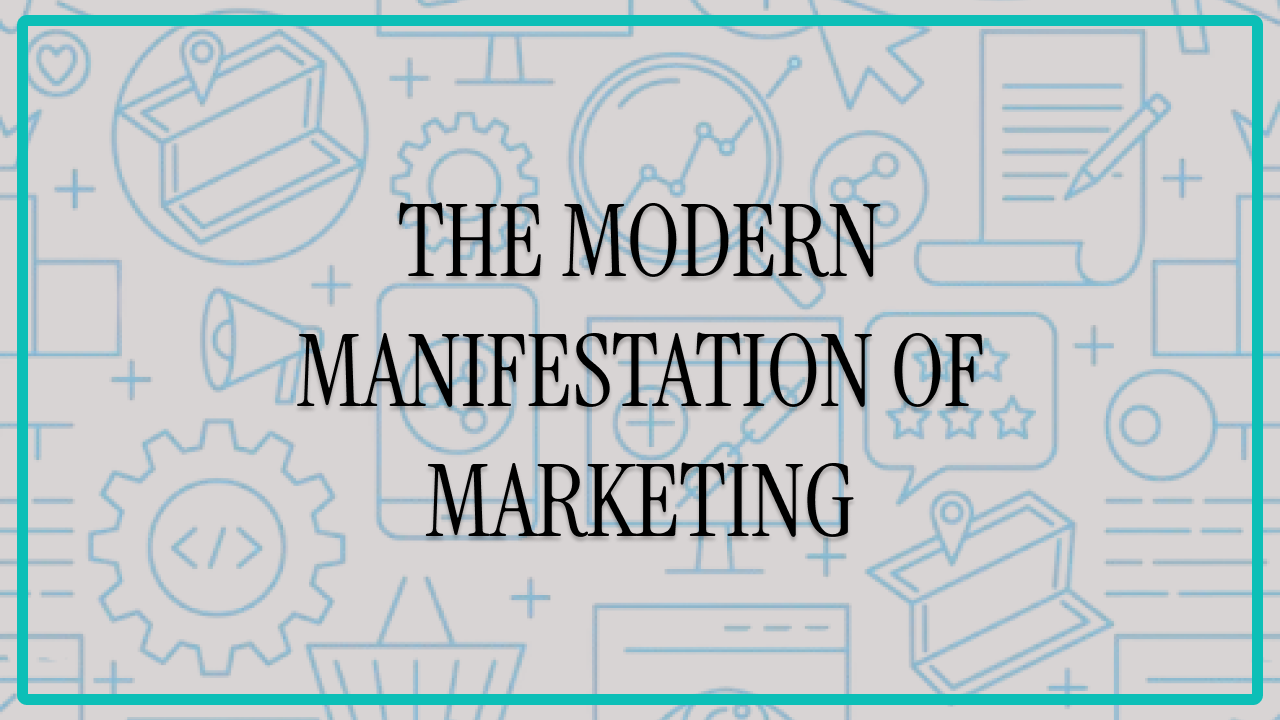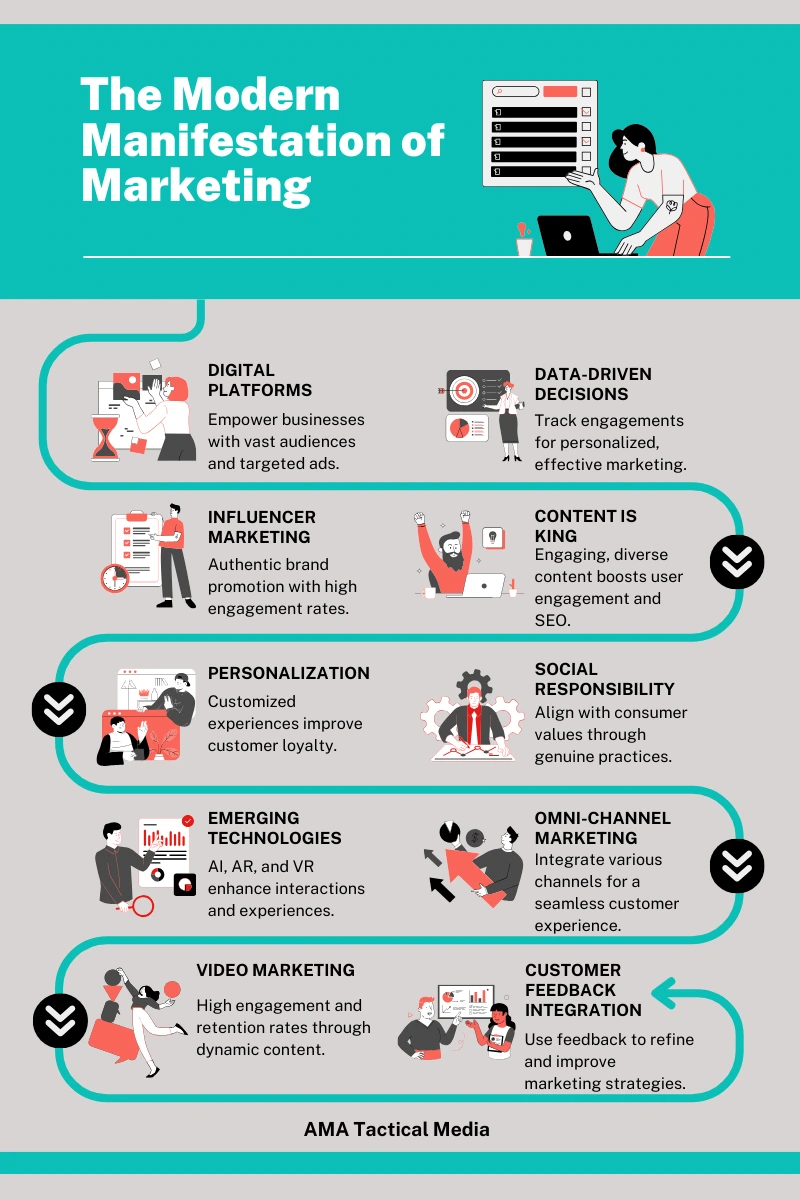
Article | Published:
Influence Unleashed: The Modern Manifestation of Marketing
The marketing realm has undergone radical transformations, especially in the age of digital connectivity. These changes have been driven by several factors, including the increasing use of technology, the shift in consumer behaviour, and the need for more personalized marketing. The current era, marked by the rise of social media, influencer partnerships, and data-driven campaigns, illustrates a significant evolution from traditional marketing tactics. This post delves into how modern marketing strategies shape brands, influence consumer behaviour, and pave the way for innovative communication methods.
At AMA Tactical Media, we have thrived by incorporating modern marketing strategies such as leveraging digital platforms, utilizing data-driven decision-making, engaging in influencer partnerships, and focusing on personalized content. Thus, we have created resonant brand experiences that align with contemporary consumer behaviours and technological advancements.
The Rise of Digital Platforms
Digital platforms, the new frontier of modern marketing strategies, have empowered businesses like never before. With billions of users on platforms like Facebook, Instagram, Twitter, LinkedIn, and TikTok, businesses now have unprecedented access to vast audiences. These platforms not only facilitate a massive reach but also enable targeted advertising based on detailed user data, including demographics, interests, and behaviours, ushering in a new era of marketing possibilities.
Data-Driven Decision Making
Today’s marketing is heavily reliant on data. Every click, impression, and engagement is tracked and analyzed to tailor marketing strategies that resonate with specific audience segments. This data-driven approach allows for more personalized marketing, increasing consumer engagement and enhancing the efficiency of marketing spending by targeting users who are more likely to convert.
Influencer Marketing
Influencer marketing, a beacon of modern marketing, has emerged as a powerful tool for brands. It offers a unique opportunity to reach audiences more authentically and engagingly. With their dedicated followers and expertise in content creation, influencers bring a human touch to brand promotions. This strategy has proven effective, leveraging the trust that influencers have built with their audience and resulting in higher engagement rates than traditional advertising forms, inspiring new possibilities in marketing.
Content is King
Content marketing remains a critical component of the modern marketing arsenal. High-quality, relevant content is valued for its ability to engage users and its role in improving search engine rankings. Today’s content is versatile, encompassing blogs, videos, podcasts, and infographics, all tailored to meet the consumption habits of a diverse internet audience.
The Power of Personalization
Personalization, a trend that continues to shape modern marketing, is all about making the customer feel valued and understood. Advances in technology have made it possible to customize every aspect of the customer journey, from personalized emails to bespoke product recommendations. This level of personalization not only improves customer experience and loyalty but also shows that brands understand their individual needs and preferences, fostering a sense of connection and value.
Social Responsibility and Brand Values
Modern consumers increasingly want to associate with brands that demonstrate social responsibility and align with their values. While this is a positive trend, it also raises ethical questions. For instance, brands need to ensure that their commitment to social responsibility is genuine and not just a marketing ploy. Issues like sustainability, ethical labour practices, and corporate governance are becoming critical factors in consumers’ purchasing decisions. Brands that communicate their commitment to these values will likely gain a competitive advantage.
Integration of Emerging Technologies
Emerging technologies such as artificial intelligence (AI), augmented reality (AR), and virtual reality (VR) are redefining marketing possibilities. AI is used for everything from optimizing customer service interactions to predicting consumer buying patterns. AR and VR offer immersive experiences that can transform how consumers interact with products, providing them with a virtual feel of the product before purchasing.

Modern marketing is characterized by an agile approach that integrates technology, embraces new platforms, and swiftly adapts to changing consumer preferences. While these strategies offer numerous benefits, it’s important to be aware of potential risks such as data privacy concerns and the need for constant innovation. Brands that can harness these tools effectively do not just market their products; they create experiences, build communities, and engage with consumers in meaningful ways. As we move forward, the influence of these modern strategies will only grow stronger, continually reshaping the marketing landscape.